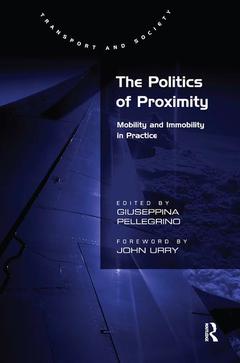Description
The Politics of Proximity
Mobility and Immobility in Practice
Coordinator: Pellegrino Giuseppina
Language: English
Subject for The Politics of Proximity:
Keywords
santiago; chile; virtual; mobility; co-presence; mobilities; paradigm; communicative; travel; mobile; Young Men; Contemporary Society; Vice Versa; Life World Phenomenology; Jaffna Tamils; LTTE; Dense; Space Time Configuration; Urry’s Argument; Sri Lankan; Diaspora Tamils; Colin Bell; Translocal Space; Virtual Co-presence; Indigenous Migrants; Face To Face; Daily Mobility; Political BSs; USA; Tamil Nadu; Urban Assets; Local Tamils; Mobility Styles; Global Nomad; Diaspora Members
Publication date: 03-2011
Support: Print on demand
Publication date: 11-2016
· 15.6x23.4 cm · Paperback
Description
/li>Contents
/li>Biography
/li>

